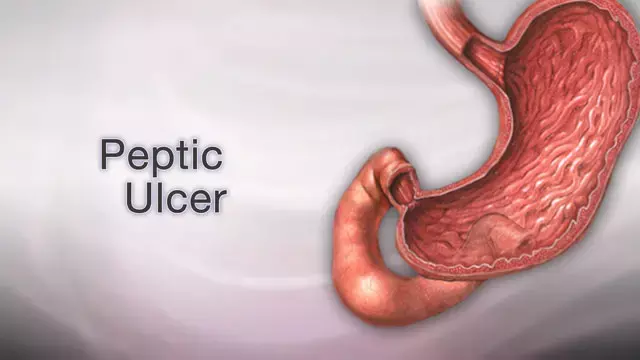- Home
- Medical news & Guidelines
- Anesthesiology
- Cardiology and CTVS
- Critical Care
- Dentistry
- Dermatology
- Diabetes and Endocrinology
- ENT
- Gastroenterology
- Medicine
- Nephrology
- Neurology
- Obstretics-Gynaecology
- Oncology
- Ophthalmology
- Orthopaedics
- Pediatrics-Neonatology
- Psychiatry
- Pulmonology
- Radiology
- Surgery
- Urology
- Laboratory Medicine
- Diet
- Nursing
- Paramedical
- Physiotherapy
- Health news
- Fact Check
- Bone Health Fact Check
- Brain Health Fact Check
- Cancer Related Fact Check
- Child Care Fact Check
- Dental and oral health fact check
- Diabetes and metabolic health fact check
- Diet and Nutrition Fact Check
- Eye and ENT Care Fact Check
- Fitness fact check
- Gut health fact check
- Heart health fact check
- Kidney health fact check
- Medical education fact check
- Men's health fact check
- Respiratory fact check
- Skin and hair care fact check
- Vaccine and Immunization fact check
- Women's health fact check
- AYUSH
- State News
- Andaman and Nicobar Islands
- Andhra Pradesh
- Arunachal Pradesh
- Assam
- Bihar
- Chandigarh
- Chattisgarh
- Dadra and Nagar Haveli
- Daman and Diu
- Delhi
- Goa
- Gujarat
- Haryana
- Himachal Pradesh
- Jammu & Kashmir
- Jharkhand
- Karnataka
- Kerala
- Ladakh
- Lakshadweep
- Madhya Pradesh
- Maharashtra
- Manipur
- Meghalaya
- Mizoram
- Nagaland
- Odisha
- Puducherry
- Punjab
- Rajasthan
- Sikkim
- Tamil Nadu
- Telangana
- Tripura
- Uttar Pradesh
- Uttrakhand
- West Bengal
- Medical Education
- Industry
Polysaccharide hemostatic powder use as effective as conventional endoscopic therapy for treating peptic ulcer bleeding

Polysaccharide hemostatic powder use is not inferior to conventional endoscopic therapy for the treatment of peptic ulcer bleeding suggests a new study published in the Clinical Gastroenterology and Hepatology
Hemostatic powders have been clinically used in the treatment of gastrointestinal bleeding. We investigated the non-inferiority of a polysaccharide hemostatic powder (PHP), compared with conventional endoscopic treatments, for peptic ulcer bleeding (PUB).
This study was a prospective multicenter randomized open-label controlled trial at four referral institutions. We consecutively enrolled patients who had undergone emergency endoscopy for PUB. The patients were randomly assigned to either a PHP or conventional treatment group. In the PHP group, diluted epinephrine was injected, and the powder was applied as a spray. Conventional endoscopic treatment included the use of electrical coagulation or hemoclipping after injection of diluted epinephrine.
Results
Between July 2017 and May 2021, 216 patients were enrolled in this study (PHP group, 105; control group, 111). Initial hemostasis was achieved in 92 of 105 patients (87.6%) in the PHP group and 96 of 111 patients (86.5%) in the conventional treatment group. Re-bleeding did not differ between the two groups. In subgroup analysis, the initial hemostasis failure rate in the conventional treatment group was 13.6% for Forrest IIa cases; however, there was no initial hemostasis failure in the PHP group (P=0.023). Large ulcer size (≥15mm) and chronic kidney disease with dialysis were independent risk factors for re-bleeding at 30 days. No adverse events were associated with PHP use.
PHP is not inferior to conventional treatments and could be of use in initial endoscopic treatment for PUB. Further studies are needed to confirm the re-bleeding rate of PHP
Reference:
Da Hyun Jung, Chan hyuk Park, Soo In Choi,Myeongjee Lee, Hee Seok Moon, Jun Chul Park, et al. Comparison of a polysaccharide hemostatic powder and conventional therapy for peptic ulcer bleeding. Published:March 09, 2023DOI:https://doi.org/10.1016/j.cgh.2023.02.031
Dr. Shravani Dali has completed her BDS from Pravara institute of medical sciences, loni. Following which she extensively worked in the healthcare sector for 2+ years. She has been actively involved in writing blogs in field of health and wellness. Currently she is pursuing her Masters of public health-health administration from Tata institute of social sciences. She can be contacted at editorial@medicaldialogues.in.
Dr Kamal Kant Kohli-MBBS, DTCD- a chest specialist with more than 30 years of practice and a flair for writing clinical articles, Dr Kamal Kant Kohli joined Medical Dialogues as a Chief Editor of Medical News. Besides writing articles, as an editor, he proofreads and verifies all the medical content published on Medical Dialogues including those coming from journals, studies,medical conferences,guidelines etc. Email: drkohli@medicaldialogues.in. Contact no. 011-43720751


